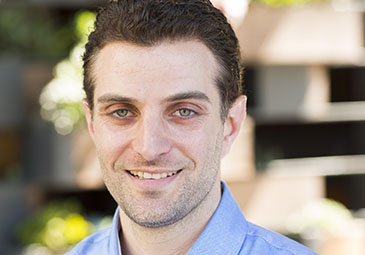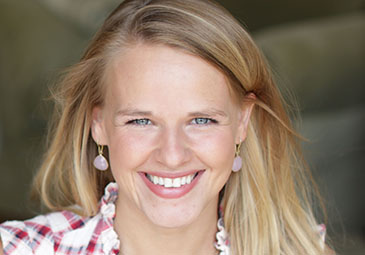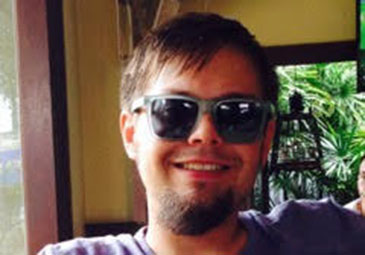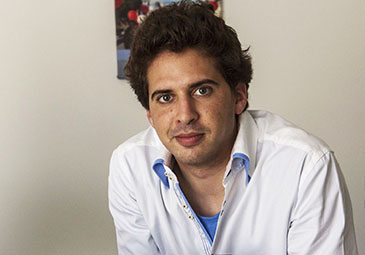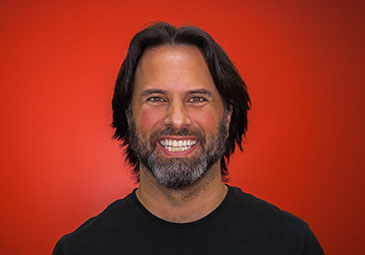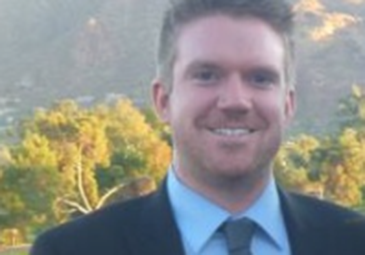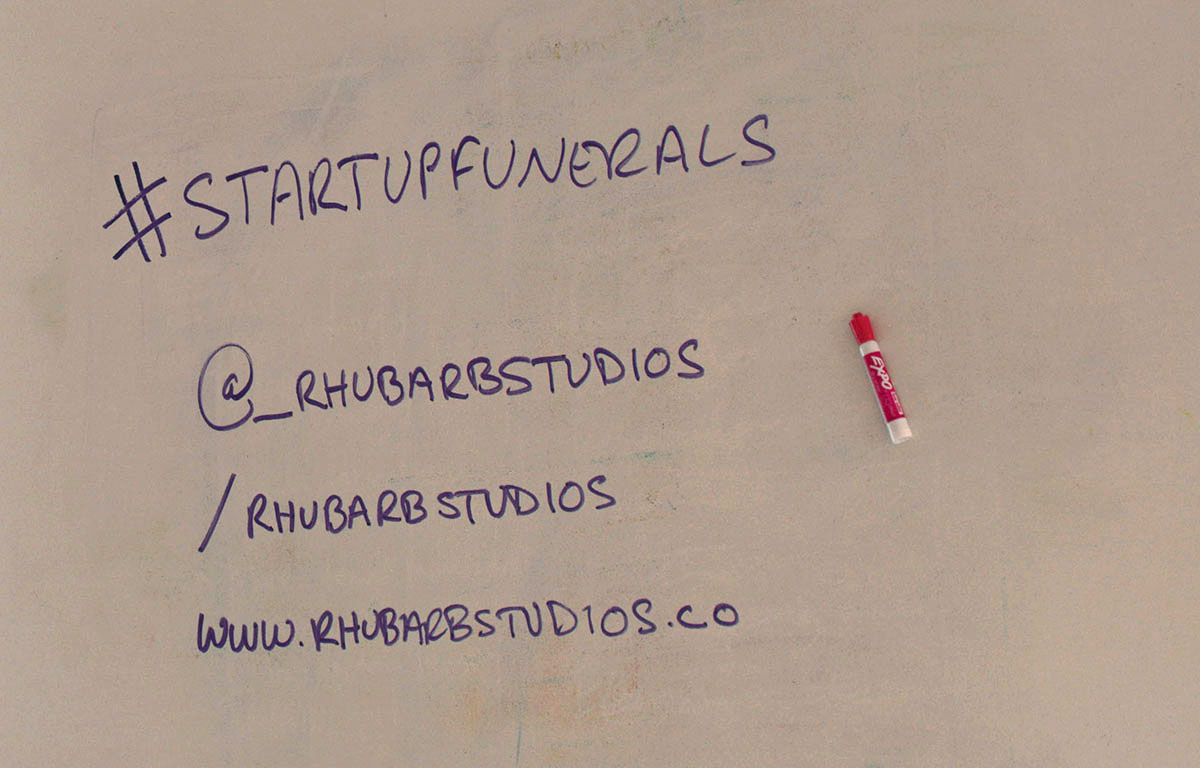
On the 14th floor of the U.S. Bank Tower in downtown Los Angeles sits a table with mason jars filled with snacks and a punch bowl holding a collection of bottles of beer on the rocks. Scrawled on the surface of the whiteboard table are the words, “Welcome! Grab a drink, snack + join us!”
As another workday comes to a close, the sun dips below the horizon beyond the floor-to-ceiling windows. The fading sun gives way to the flickering of fluorescent lights.
Finally, the talk dies down as the evening’s moderator calls the gathered crowd to their seats for the main event.
The funeral is about to begin.
Startup Funerals such as the one hosted by an incubator and accelerator, rhubarb studios, on August 4 are becoming more commonplace within the tech industry. These events may seem flippant, commensurate with the startup industry’s mantra of “fail fast, fail often.” But startup stalwarts such as rhubrarb studios CEO Cauri Jaye and Dana Severson, co-founder of the online support community Startups Anonymous, view failure as a beginning, not an end.
For Jaye, failure in the startup world yields a priceless learning opportunity for entrepreneurs, and Startup Funerals provide a forum in which to discuss these setbacks and implement lessons for future ventures. Meanwhile, Severson’s Startups Anonymous website exhibits the deep psychological and financial toll that failure in the startup industry has exacted upon even the most intrepid entrepreneurs.
As Jaye himself admits to the hopeful entrepreneurs at the Startup Funeral: “You would not believe how hard it is to find people who are willing to talk about their failures.” That’s why so many entrepreneurs cloak themselves in anonymity before disclosing their failures on Severson’s website.
In a phone interview, Severson mentions the high incidence of mental health problems in the startup world; indeed, a study by Dr. Michael Freeman, a psychiatrist associated with the University of California, San Francisco, puts the rate of mental health issues as high as 49 percent.
But Dr. Robert A. Baron, professor of entrepreneurship at Oklahoma State University, highlights the positive traits associated with startup founders, linking their bullish determination to their sense of “self-efficacy.”
“The belief that they can succeed at any task they undertake, even if others fail— that’s linked to high optimism,” Baron writes in an email. “They do really think they can ‘beat the odds.’”
Or in Severson’s words: “Founders and entrepreneurs are delusional. We believe in something highly unlikely. We understand that, but we don’t necessarily accept that.”
Everyone gathered at the rhubarb studios’ Startup Funeral is there for a reason: to share their encounters with failure in the startup industry, to learn from these tales, and to commiserate with the experiences of others.
Cauri Jaye first introduces the two panelists for the evening, Bobby Springston and Kyle Hill, who break the ice by recounting their own tales of personal and financial hardships.
“Who wants to go first?” Jaye inquires of the two panelists, Springston and Hill. Bobby Springston volunteers, looking back to Jaye for affirmation.
“Go ahead,” Jaye says. “It’s your funeral.”
Bobby Springston (CEO and Co-Founder of Quipley, Inc.)
Everything was going great for Bobby Springston at Palladio Group until one morning in 2005 when the Co-Founder of his software startup company was arrested by the FBI.
“Is this real? Is this a dream?” the 40-year-old Springston said, recalling his shock when he got the news.
“In one day, I lost my first customer and my funding. Everyone else in my life pretty much bailed, too.”

Panorama view of rhubarb studios.
Springston’s failure was one of the cautionary tales featured at the Startup Funeral.
He admitted that he barely knew his partner, and was not privy to the latter’s financial dealings.
“I got a call from a complete, total stranger who had found out about me from the programming scene,” Springston said, recalling the origins of the startup. “He wanted to start a company. I said, 'Wire me a hundred grand and we can talk about it.’ And he did.”
The fallout from his startup’s death included his wife leaving him. He said she was tired of the roller coaster ride.
“It definitely takes a toll on your personal life when [startups] don’t work out. It’s not just as easy as transitioning from one job to another.”
Springston’s comment echoes Startups Anonymous co-founder Dana Severson.
“Those collapses— those failures— are too much for people to handle,” Severson said. “Those are the times when people need the most support.”
At this point, Springston thought he was done with startups and with the oftentimes fatalistic pursuit of passion projects. “I swore I wouldn't do another startup,” he said.
“But when you start caring enough about a problem and then you really see a solution…”
He shrugged helplessly and smiled.
“You become an entrepreneur because you're driven to, and life doesn't let you really change that.”
In a way, the entrepreneurial life involves a selection process, Dr. Robert A. Baron explained. Those who are deterred by early failures and don’t continue down the path of entrepreneurship aren’t likely to call themselves entrepreneurs. The real entrepreneurs are the ones who are “resilient” enough to bounce back from failure.
At their core, entrepreneurs are problem-solvers, pulled along the path of entrepreneurship by an incessant desire to fix things.
For Springston, the latest problem was how to facilitate funding for school enrichment programs through local businesses.
“This particular problem was something [my partner and I had] been chewing on for 2-3 years before the right technology solution presented itself,” he said.
When Apple Pay was unveiled in September 2014, Springston immediately knew he had his solution. As a result, Quipley, a mobile platform that brings people and businesses together to support schools, was born.
Cauri Jaye (CEO and Co-Founder of rhubarb studios)
Cauri Jaye, the moderator of the Startup Funeral, has built a career out of teaching people not to follow in his footsteps.
“The only reason I can do what I do now— training other people to build startups — is because I have that to look back on,” Jaye explained, referring to the slow death of one of his early startup ventures. “I can check every box and go, ‘Yup, been there; yup, been there…”
His entire business philosophy is built on the concept of bouncing back after failures.
“Failure as we use it in the startup world is not ‘failure’ as it’s used in a lot of other areas of the world,” Jaye said. “Failure in most of the world has a very negative connotation. Failure in startups means learning opportunities.”
Jaye’s attitude towards failure was shaped early on. He learned an important lesson while building Pressbook.com, a site made for the fashion industry in Paris during the dot-com boom.
“We were being very reactionary to what was going on,” Jaye said. “We built this platform that never did what the market really needed. So that, for me, was a failure even though we built something [that still exists].”
Jaye wanted to ensure that others in his position didn’t make the same mistakes. In 2014 he established rhubarb studios on the 14th floor of the U.S. Bank Tower in downtown LA with a two-pronged goal: attract the attention of budding entrepreneurs and established businesses alike.
Jaye outlined his plan for the company: “Find the physical space, find the smart people, find the resources and pull them together with a vision, a process and a good, core set of values so that we could rapidly create startups.”
This collaborative space, which serves as both incubator and accelerator, is meant to remove several “completely avoidable” stumbling blocks to launching a startup: lack of resources, lack of knowledge, lack of market plan and overall lack of business savvy.
The panoramic windows which span rhubarb’s open-plan workspace boldly reveal the downtown landscape and horizon beyond.
“Those buildings contain finance and banks, that over there is manufacturing, that’s fashion over on that side, [and] there’s architecture, accounting and construction,” Jaye said, gesturing toward those industries’ respective locations.
“By situating ourselves in the middle of all of that, we can just sit here and go, ‘Hey guys, we’re here! You wanna build technology? We’re the place.’”
Dierdre Zackery-Qualls (Co-Founder of Hey Let’s Go)
Dierdre Zackery-Qualls is building the technology to match up “travel buddies” through her app, Hey Let’s Go. As the more seasoned entrepreneurs at the funeral shared their experiences with failure, she sat quietly, but attentively, making mental notes of the collection of “cautionary tales” like Springston’s.
She has pretty much always been a woman in a man’s world, but Zackery-Qualls hasn’t let that discourage her.
“When you harp on the hardships, it makes you feel like you can't do it,” the 24-year-old California State University, Northridge grad confided. “I'm not going to let something that hasn't happened get me down.”
That sense of clear-eyed optimism is what has kept Zackery-Qualls on track while trying to launch the startup she’s been developing with her mother, Jennifer Qualls.
Zackery-Qualls refuses to let her gender define her.
“The more that you focus on how few women there are, the more you start to put yourself in a box,” she said. “When I do see women, I'm able to connect with them on a deeper level. But when I'm out there with men, I'm able to connect with them, too.”
Video animated by Chole Marie Rivera.
Zackery-Qualls is poised to be a prime beneficiary of Cauri Jaye’s pedagogical philosophy of failure.
One of the lessons she learned at the funeral was recognizing when to pivot.
“If you notice that something is not working, you're actually able to completely change the concept of your company,” she explained.
A more immediate lesson was that she should probably scale back the application of her business model.
Neither mother nor daughter has any experience with coding. The fact that Zackery-Qualls frames these struggles as stumbling blocks rather than deterrents speaks to the entrepreneur’s inherent “optimism,” as explained by Dr. Baron.
“Perhaps one of the most important characteristics is that they actually get started,” Baron said. “They take actions to turn their dreams into reality. Many people have ideas—even good ones—but that’s the end of the process.”
Now that Zackery-Qualls has begun the process, she’s doing her due diligence to avoid the pitfalls that may occur along the way. By attending rhubarb’s Startup Funeral and other events like it, she hopes to learn from the failures of others.
Anonymous Entrepreneur
For some, the shame is too strong to allow them to speak openly about their past failures.
This was the case for Startups Anonymous Co-Founder Dana Severson.
“My own company crashed fairly quickly— it all happened over the course of two years,” he said. “I really wasn’t comfortable talking about it openly. I had questions that I was kind of embarrassed to ask with my name attached.”
One funeral attendee, who quit a cushy consulting job in New York City to launch a startup with his own savings, spoke about his failure and financial loss on the condition of anonymity.
Kyle Hill (CEO and Founder of HomeHero)
As a panelist at the Startup Funeral, Kyle Hill spoke at length about his ill-planned startup venture, FlowTab, an app designed to streamline the process of ordering drinks at bars.
He pointed to FlowTab’s rapid expansion from Los Angeles and San Francisco to Denver and then Oregon as the primary cause for its demise.
“We had no idea who our target demographic, our target user, or our target bar was,” he said. “We never really found product/market fit in one area.”
Even after he came to the realization that his company was dead, Hill found it hard to let go.
“You have an emotional attachment to something you’ve worked really hard on,” said Hill. “That was my baby.”
Hill eventually cut his losses and decided to use his experience with the failed startup as a “springboard” for his next venture.
Initially inspired by the challenge of finding help for his grandmother, Hill launched HomeHero, a service dedicated to connecting families with caregivers for their loved ones.
“I’m very proud of the company that I’m a part of,” Hill said. “HomeHero provides over a million hours of care to families all across Los Angeles.”
He considers finding quality home healthcare the challenge of his generation.
Plus: “The ability to touch the lives of seniors is so freaking cool.”
Freaking cool and investable. HomeHero has reportedly raised $20 million in venture capital funding, according to The Wall Street Journal.
“If I were investing in a company or an individual, I would reward failure to the extent that I felt that they learned a valuable lesson,” said Hill. “If I saw a kid on the playground get his butt kicked, like, three times, that doesn’t mean he’s a good fighter… but maybe it means he’s good at getting himself up.”
Hill may have gotten his butt kicked once, but he got back up.
